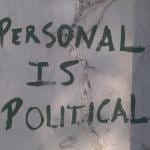
Human beings have an innate desire to be ruled by a King, a single leader who exercises complete authority over them and to whom their devotion can be expressed.
This impulse is no doubt related to humanity’s dim recognition of the kingship of Christ. But though history is replete with nations that have had good kings and balanced systems of government such as constitutional monarchies, sinful leaders with absolute power can be disastrous. (See 1 Samuel 8.)
The United States of America is a republic–that is, nation that belongs not to a ruler but to the “public,” with a government operated by the people themselves. Americans have always had a fear of tyranny and an aversion to political officials with too much power.
This has applied too to the office of the president. Though some holders of that office have been greatly esteemed–Washington, Lincoln–presidents were considered to be nothing like kings. And yet, beginning in the 20th century and intensifying into the 21st, presidents have acquired more and more power and have been taking on a king-like aura as the focus of citizens’ civic devotion.
Joshua Lawson, writing in The Federalist, has written an excellent article on the subject entitled It’s Time To Stop Feeding The Exalted Presidency, with the deck, “We must regain a healthy skepticism of our top leaders and an innate revulsion to anything that smacks of kingliness or imperial deference.”
For more than a century, presidents have expanded the powers of the executive branch while Congress holds the door open. Compounding the problem, an increasing number of Americans see the person who occupies the presidency as an avatar with whom they should place their value, their hopes, and even their sense of purpose. The result has been disastrous.
Embracing a monarchical spirit in everything but name has pulled people away from tending to their local communities, fueled cults of personality, and done great harm to the checks and balances designed to protect our political system. . . .
Leaders of the White House have become messianic figures to their political and media allies; their missteps and failures are explained away by a majority of their voters, and they receive more and more delegated power from a cowardly U.S. Congress that continues to shrink from its constitutional duties.
Think of John F. Kennedy, Ronald Reagan, Barack Obama, and, yes, Donald Trump.
Lawson traces the rise of what has been recently described as “the imperial presidency,” to the progressive movement, particularly the anti-constitutionalism of Woodrow Wilson.
In our current obsession with “Leadership”–not only in government but in business and even in the church, in our views of the pastoral ministry–it is worth reflecting on Lawson’s observation that in the Federalist Papers, in 12 of the 14 times “leader” is mentioned, “the word is used negatively — associating ‘leaders’ with demagoguery, factionalism, and vice.”
Lawson says that Americans must return to the separation of powers and the checks and balances as provided for in our Constitution. “The executive branch needs to get back to taking care that the U.S. Constitution and the laws of the nation are being faithfully executed rather than abusing executive orders as a way to bypass Congress from the legislative process entirely.”
He concludes,
We the people must be the check on the presidency. We the people must demand Congress take back its role as the preeminent branch of government. We the people must starve presidents of the attention and absolute loyalty they now crave. We the people must roll back and curtail the unbridled reverence of the presidency that has warped the Oval Office.
Through the power of our collective voices and votes, we the people must begin to rescind the exalted presidency, and rediscover our quintessentially American antipathy towards monarchs — no matter if their official title isn’t “king” but “president.”
Image: lumaxart, CC BY-SA 2.0 <https://creativecommons.org/licenses/by-sa/2.0>, via Wikimedia Commons














